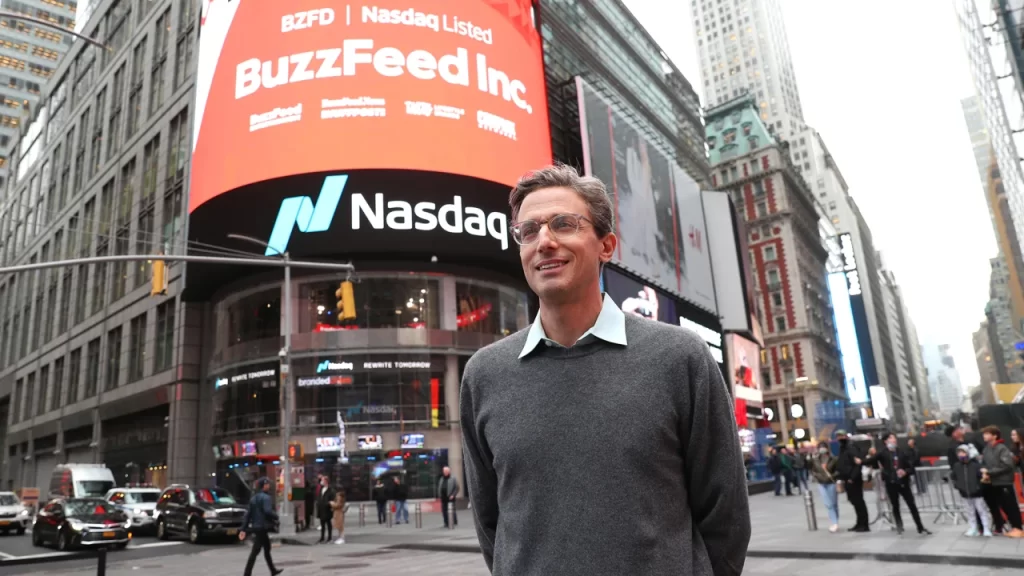
It is the end of an era.
BuzzFeed News, the digital news outlet that harnessed the power of social media to take the internet by storm, is shuttering. The move marks the end of the digital media upstart frenzy rooted in the late aughts that enlisted a new generation of young journalists and once threatened entrenched legacy news organizations.
The outlet once inspired tremendous jealousy from the likes of CNN and The New York Times. Flush with venture capital cash, it poached top journalists at establishment outlets, opened bureaus across the world, and touted its ability to send stories viral across the web.
Back then, BuzzFeed was the envy of media and its employees the cool kids of the industry. The outlet was sown into the fabric of the culture. Lists and quizzes saturated social media feeds and dominated the internet.
The digital news pioneer rode the early growth of platforms such as Facebook and Twitter to soaring heights. While older competitors were wary about the new horizon opening up on the web, BuzzFeed leaned into it, tapping the platforms for their audiences’ attention and reaping the incredible rewards.
But that was a very different time. Like an oil field tapped dry, publishers can no longer exploit Facebook as a firehose for traffic and revenue. And Twitter, where BuzzFeed News made a name for itself among the journalism community, often ensuring the entire industry read a story by having its stable of reporters tweet an article simultaneously, is collapsing under Elon Musk.
Jonah Peretti, the BuzzFeed co-founder and chief executive, effectively said this in his memo to staffers on Thursday when he accepted blame for the shuttering of the news division. Peretti acknowledged he was “slow to accept that the big platforms wouldn’t provide the distribution or financial support required to support premium, free journalism purpose-built for social media.”
Ben Smith, the Semafor co-founder who was the founding editor of BuzzFeed and has a forthcoming book due out about the “billion-dollar race to go viral,” was more explicit: “I do think it makes really clear the relationship between news publishers and social media is pretty much over,” Smith told CNN Thursday.
Smith, who said he is “heartsick” by the shuttering of the news division that he spent years fostering, is spot on. As the dinosaurs of the social media era get their lunch eaten by newcomers such as TikTok, so are the outlets that previously wielded those same platforms as their superpowers.
In fact, you can trace the rise and fall of BuzzFeed News with the rise and fall of Facebook. The outlet, which exploded onto the scene about a decade ago, soared on the wings of the social platform before slowly waning. While it managed to win a Pulitzer Prize in 2021, it had become evident in recent years that BuzzFeed News was in decline from its glory days. Leadership slashed its acclaimed investigations team, shuttered entire verticals, and pared down the newsroom’s size and ambition for global domination.
The move to kill off its news division doesn’t necessarily spell great news for BuzzFeed at large either, which is perhaps why its stock tanked 20% on the announcement. BuzzFeed News gave BuzzFeed writ large prestige that the other content companies of the bygone era (ViralNova, Distractify, etc.) didn’t have. BuzzFeed used to boast that it didn’t just do silly quizzes, but also invested in serious hard-hitting journalism. What is it now?
Peretti has said he would like to now draw on the power of A.I. to help create content for BuzzFeed. Like his resolve to lean into the new frontier of social media in the late aughts, Peretti is once again betting his business on adapting faster than his competitors to the latest cutting-edge technology that will reshape the industry.
But BuzzFeed’s ability to thrive in this brave new era remains to be seen.





























